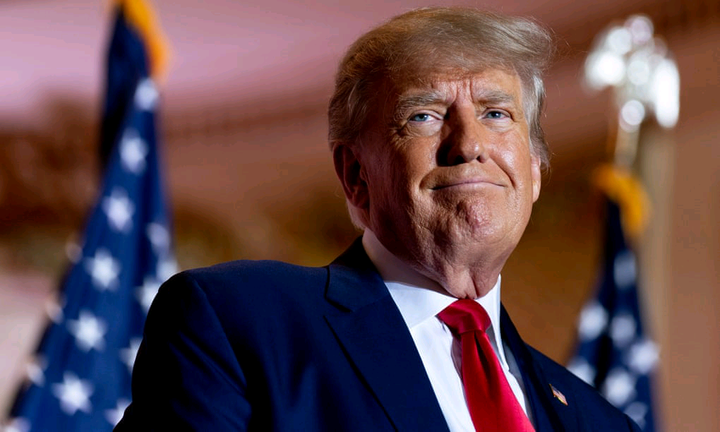Attempt to Dismiss Trump’s Mar-A-Lago Case Takes Startling Twist as Judge Cannon Receives Major Plea

Photo: Andrew Harnik/AP
Former President Donald Trump’s attempt to dismiss charges related to his alleged unauthorized retention of classified documents at Mar-A-Lago has taken a surprising turn as he presented a major plea to Judge Aileen Cannon.
In a post shared on Friday, July 5, 2024, Trump has submitted a compelling argument to Judge Aileen Cannon, citing a Supreme Court decision as supporting evidence in his bid to dismiss charges related to his alleged unauthorized retention of classified documents at Mar-A-Lago.
In his plea, Trump argues that the Supreme Court’s decision bolsters his claim of Presidential immunity, necessitating a reevaluation of the charges against him. Additionally, Trump has filed a motion requesting permission to submit supplemental briefings on the matter.
The case, United States of America vs. Donald J. Trump, et al., currently before the United States District Court for the Southern District of Florida, has seen significant developments.
In a formal submission titled “President Donald J. Trump’s Notice of Supplemental Authority,” Trump references the Supreme Court case Trump v. United States to challenge the prosecution’s stance on his immunity.
Trump’s legal team argues that the prosecution’s assertion of “no immunity” for Trump is politically motivated and lacks merit. They contend that the Supreme Court ruling in Trump v. United States undermines the prosecution’s position and that the court should dismiss the charges based on this newfound authority.
Trump’s legal team also emphasizes that the prosecution cannot rely on evidence of “official acts” in this case, citing specific legal precedents. The crux of Trump’s argument hinges on Justice Clarence Thomas’s concurrence in the Supreme Court decision, which adds weight to Trump’s motions concerning the Appointments and Appropriations Clauses.
Justice Thomas, referencing Justice Antonin Scalia’s dissent in the Morrison case, suggested that the statutes under which Special Counsel Jack Smith was appointed may not meet the constitutional requirements outlined in the Appointments Clause.
Justice Thomas’s remarks highlight significant separation-of-powers concerns, suggesting that the statutes cited do not establish Smith’s position “by Law” under the Appointments Clause.
Consequently, Trump’s legal team argues that these statutes are not valid under the relevant appropriations law, and thus, the fundamental questions raised must be addressed before the case proceeds further.
In light of these arguments, Trump’s legal team has requested Judge Cannon to allow supplemental briefing to address these critical constitutional issues. They assert that resolving these “essential questions” is paramount before any further proceedings in the case.
Trump’s plea to Judge Cannon marks a significant twist in the ongoing Mar-A-Lago case, bringing the Supreme Court’s recent decision into the forefront of his defense strategy.
As the court considers Trump’s request for supplemental briefing, the case’s outcome could have far-reaching implications for presidential immunity and the constitutional limits of prosecutorial authority. The next steps in this high-stakes legal battle remain to be seen as both sides prepare for further arguments.





